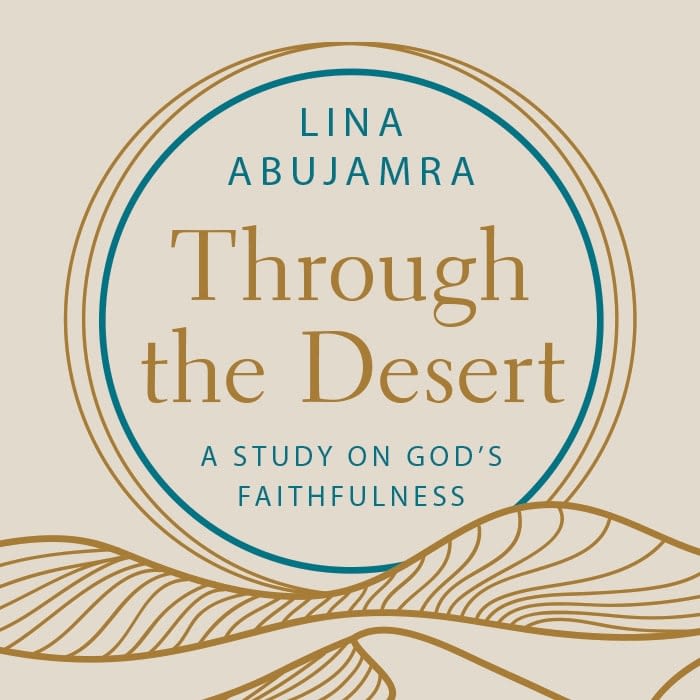When you consider your spiritual life, in what areas would you like to see more gains? Is the fruit of the Spirit evident in your life? Is your prayer life the open line of communication with your Creator that you desire? Are you seeking to show hospitality? For any area of spiritual health that seems wanting, the Word of God is a must. But what I really want to focus on here is why studying, not just reading, the Bible is of utmost importance for us as women. Colossians 1:10b says “…bearing fruit in every good work and increasing in the knowledge of God” go hand in hand. We can’t be salt and light to an unknowing world without knowledge of God that comes in part from knowing His Word. Conversely, the more we study the Bible and know His Word, the more fruit we will bear for His glory.
As women, we are often caregivers and caretakers: of family members and neighbors old and young, of homes and workplaces. A lifetime will see us go through various seasons. Some have more margins; others have every minute allocated before the alarm goes off. But whatever demands have been placed on us or we’ve placed on ourselves, our dedication to studying the Word of God is paramount to accomplishing anything fruitful. This doesn’t mean if you study the Bible every day, that every one of those days will go swimmingly. But it does mean that if you faithfully study God’s Word, your attitude and heart-position will become more like the Author.
The goal of studying is to engage in the Word, leaving with a better or deeper understanding than you came with. “All Scripture is breathed out by God and profitable for teaching, for reproof, for correction, and for training in righteousness, that the man of God may be complete, equipped for every good work” (2 Tim. 3:16–17). Delving into the words God wrote has so many benefits and when we shirk quality study time, we miss out on growing spiritually and being a valuable asset to His kingdom.
But as with so many other aspects of the Christian life, if we aren’t studying with the right motives and the right attitudes, we’ll still miss the mark. If I pull out all the commentaries and set aside a chunk of time that feels sacrificial but haven’t come to worship, I’m not spending my time effectively. The other evening, my husband and I were discussing reading to know versus reading to grow. The first leads to head knowledge; the latter leads to heart knowledge. Both are needed when you open your Bible. Come with curiosity. Come with an eagerness to hear from the Lord.
If studying the Scripture is already a healthy spiritual habit for you, hopefully you will find something here to encourage you or help you gain a fresh perspective. If studying the Bible seems a daunting assignment with a seemingly dry or confusing text, I’d like to guide you toward confidently walking in obedience to the task before you with the following methods and resources.
Study Helps
I’ll start by going over some useful resources that can assist with any of the methods described below.
- A study Bible often has many tools jam-packed into its pages: study notes for many verses, maps, articles, book introductions, cross-references, and abbreviated concordances.
- A concordance is an index of words that appear in the Bible. You can purchase one or find a free one online, but note that they are translation-specific so make sure the one you’ve selected works for the translation you use most often.
- Commentaries unpack the meaning of individual books of the Bible. If you picked up a commentary on Galatians, it would go verse-by-verse or section-by-section through the book. It’s as if you have a seminary-trained friend sitting at your elbow, excavating little truths in your reading. Some commentaries are highly academic; others are more accessible and written for a wider audience.
Authored Bible Studies
Participating in women’s Bible studies has been one of the most enriching parts of my adult life—there’s just something about getting into the depths of God’s Word in a community of women. Reading a Bible study written by an author is great for both the newbie and seasoned studier as it is so versatile. You can read alone, but participating with a group can provide accountability if that’s a benefit to you. If you’re waiting on someone to invite you to a Bible study, start your own. You don’t have to be well-versed in a topic or book of the Bible to lead a study; many studies offer enclosed leader guides. The great thing about Bible studies is that if you’re in a season where finding fifteen minutes of quiet is a challenge, there is a study for you. If you’re in a season where you can set aside an hour or more to study, there is a study for you. If you’re wondering which Bible study to choose, a few of my friends have written articles to help with your selection. Mandy wrote about studies on women in the Bible, Elise wrote about studies for young women, and Gabbi wrote a post on studies for Christian women of all ages and stages.
Use Sermons as a Starting Point
The sermons you hear in person or through an app can be a great place to springboard your study, especially for those new to studying the Bible on their own. Oftentimes, pastors provide context for the passage preached on. Take your newfound knowledge and spend some time with that selection. Read verses appearing before and after and consider which words or themes were highlighted by the speaker. If supporting Scriptures were used, look those up as well.

Read a Passage Multiple Times
Select a passage, chapter, or one of the shorter books of the Bible (like Esther or Obadiah from the Old Testament or Titus, 2 John, or 3 John from the New Testament) to read through. Then over the course of several days, read through the entire selection repeatedly. With each reading, the Holy Spirit will likely draw something different to your attention. Again, this is a method to use whether you have plenty of time or very little; just cater the length of the selection to the time you have.
Ask Questions
To deepen your understanding of Scripture, ask questions while reading the text. Two of my favorites to pose when I’m reading a passage are, “What does the Lord want me to know?” and “What does He want me to do?” Bible teacher and author Priscilla Shirer asks when reading the Word, “Is there a command to follow? Is there a promise to heed? Is there an attribute or characteristic of God that He is trying to reveal to you about Himself?” She has said that for her, “this is where the rubber meets the road.” She said, “Inevitably, a divine dialog starts within me. The Holy Spirit of God begins to challenge me and even bring up questions that I didn’t think to ask myself. There are more questions that come to me; I write those down and I begin to record the answers. You’ll be surprised how quickly and easily you can begin to hear God’s Spirit speaking to you through Scripture.”1
Break the Rules of Bible Reading Plans
There are a variety of Bible reading plans: the Bible in a year (the perennial favorite), reading through chronologically, the New Testament in sixty days. And while I think those are beneficial in building the healthy habit of daily reading, sometimes the verses go by so quickly, it’s hard to camp out and meditate on them. What if you took your daily Scripture reading deeper by keeping the plan but throwing out the time constraint? You could still read the selection of the Old Testament and the selection of the New Testament as prescribed in the reading plan, but by using a commentary along with your reading, accept that it might take you several days to get through what the plan says should take just one. Or maybe rather than a scant ten minutes daily, you could do a fuller sixty minutes a few times a week. The goal is depth of study and engagement with the Word of God. Don’t be afraid to break a few rules!
Word/Topic Study
This is a method that will rely heavily on a concordance. Pick a word or topic that you really want to delve into and systematically go through every appearance of the word in Scripture. For instance, in the ESV Exhaustive Concordance (“Exhaustive” means it includes words like “a,” “so,” and “their”) when I look up “mercy” I see that in Jude 1:21-22, “keep yourselves in the love of God, waiting for the mercy of our Lord Jesus Christ that leads to eternal life. And have mercy on those who doubt,” the first instance of “mercy” means mercy in the traditional sense, but the second instance connotes pity.
Let the Holy Spirit Guide You
“For the word of God is living and active, sharper than any two-edged sword, piercing to the division of soul and of spirit, of joints and of marrow, and discerning the thoughts and intentions of the heart” (Heb. 4:12). The Spirit can do amazing things through the living Word. Please don’t mistake me. I’m not the biggest fan of the flip-the-Bible-open-and-find-your-life’s-purpose-where-your-fingertip-lands method. But I do want to encourage you from my personal experience—when I’m regularly digging into the Word, hungering for His truth, the Spirit speaks. I gain understanding from what I’m reading and I come away feeling refreshed.
If studying the Bible isn’t currently in your routine, it might be hard to see where this time might come from. Rather than look at what you have to give up in order to make this habit happen (I’m looking at you, Additional Ten Minutes In Bed), focus instead on what you’ll gain: knowledge about the character of our Savior, the overarching narrative of the Bible, and the faithfulness of God across generations. If you automatically assume you’re in a busy season of life, take stock just to make sure. I remember suddenly realizing one day that while I was avoiding sitting down and getting involved in anything in-depth, I wasn’t actually busy because my small people were becoming a little more independent. Allow your study sessions and methods to fluctuate along with your changing seasons.
What creative ways have you found to study the Bible in your life stage? Please share your tips and strategies below!
1. “Priscilla Shirer Discusses the 5 Ps of Bible Study,” February 1, 2017, Lifeway Women, https://youtu.be/O7qZUhCJINk.




